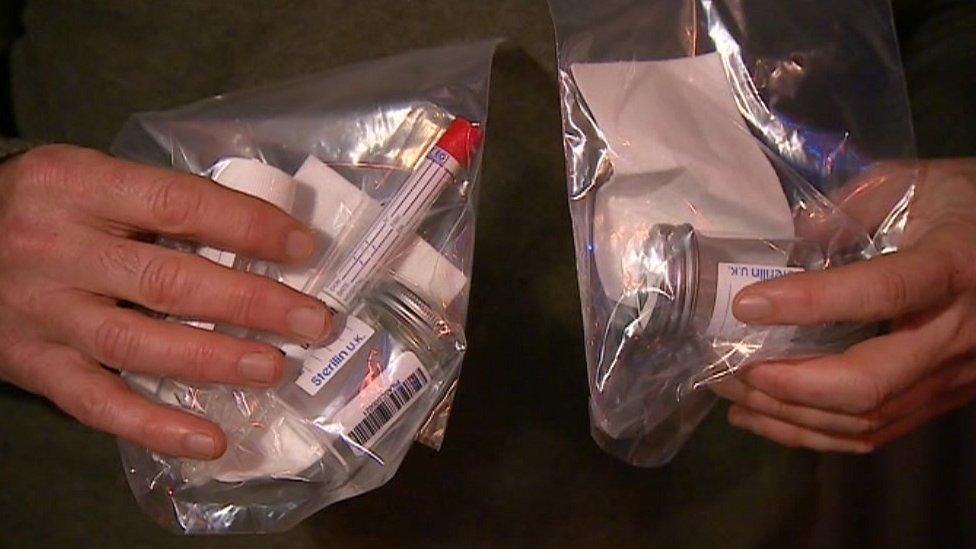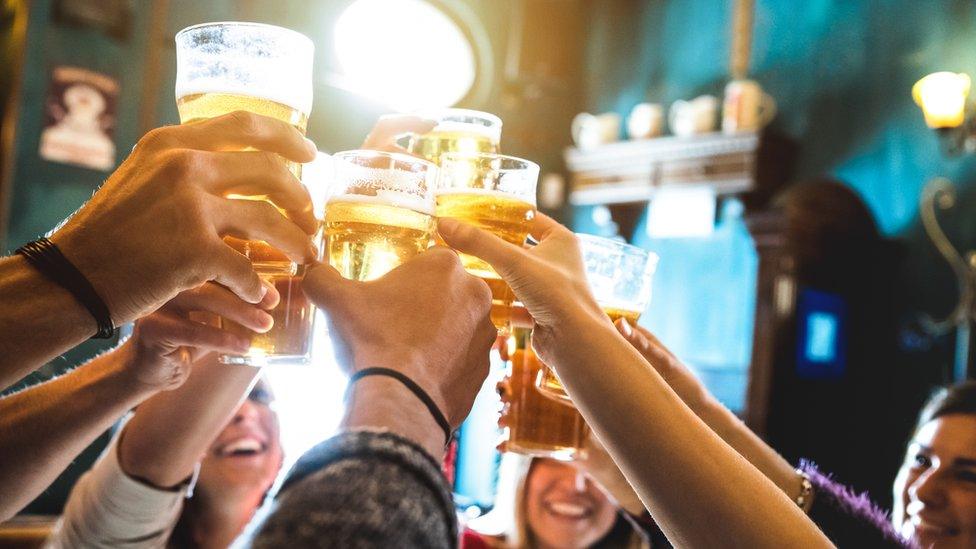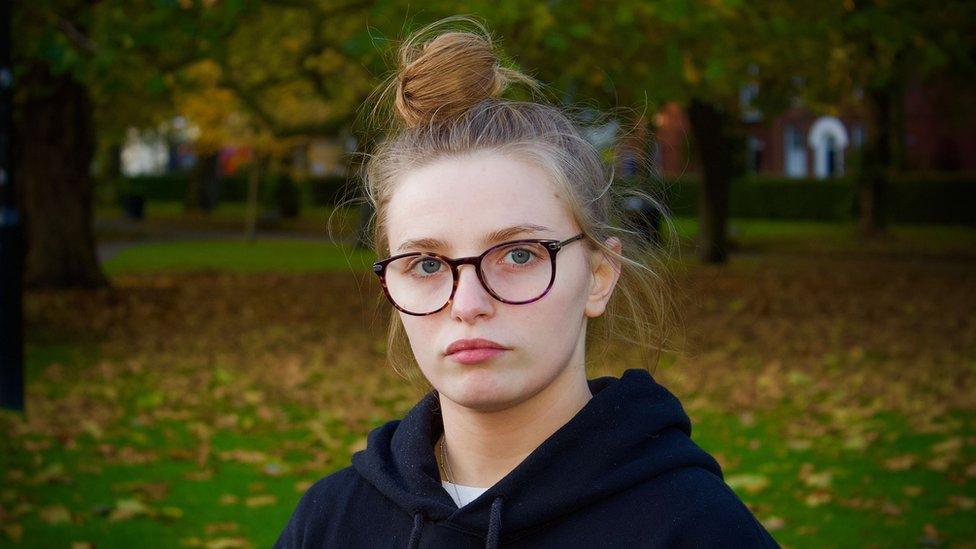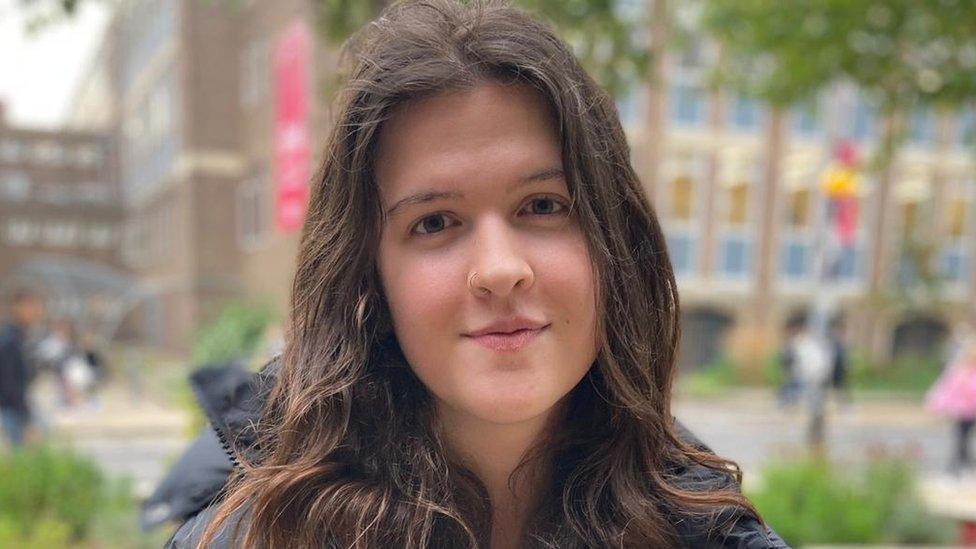Norwich: Drug spiking test kits hit bars and clubs in pilot
- Published

Test kits for people who suspect their drinks have been spiked or fear they have been injected be available in Norwich bars and clubs
A hospital said it hoped anti-spiking kits being issued to nightspots would lead to fewer people being targeted.
Norfolk and Norwich University Hospital set up the project due to the rise in reports of people being drugged and experiencing disorientating symptoms.
The kits will be available at Norwich venues over Christmas to anyone who fears they have been attacked by criminals using needles or drinks.
The kits allow people to provide a urine sample for lab testing.
The pilot project is being carried out with the help of police, bars, clubs and the city centre's SOS bus.
The hospital's biomedical scientist Michelle Frost designed the test kit and said it would allow for speedier analysis while the chemicals were still in the body, because the drugs have often left a person's system if there is a delay before they reach hospital.
"It's getting the best kit possible into the bars so we can have a greater understanding about what is actually happening," she said.
"By the time somebody goes to accident and emergency it can be too late," she said.
A positive urine sample is then put through a machine at the hospital which can detect up to 1,600 different chemical compounds.
'Definitely a start'
University of East Anglia student Ellen Newell, who has been a victim of needle-spiking, said: "I think it's incredibly comforting.
"It just makes you feel a lot safer on a night out.
"Not sure how effective it would be in terms of needle-spiking, as I didn't realise [I was spiked] until the next day.
"It's definitely a start and needle-spiking isn't as common as drink-spiking anyway."

A hospital pilot scheme aimed to help people find out if they had been spiked over Christmas
Prof Erika Denton, medical director at the hospital, confirmed nearly 100 reported instances across Norfolk since the beginning of October.
"This is important on many levels. It means we can work out what the substances are that are being used," she said.
"It means we can gather data on how prevalent the problem really is and support our emergency and urgent healthcare workers, so that we treat people more effectively."
Mike Baxter owns Gonzo's Tea Room which is one of the city's bars which will give the kits to customers who are worried they might have been targeted.
"It's reassurance for the punters. If people feel safer, they feel more comfortable coming out," he said.

Find BBC News: East of England on Facebook, external, Instagram, external and Twitter, external. If you have a story suggestion please email eastofenglandnews@bbc.co.uk, external
Related topics
- Published14 December 2021

- Published8 November 2021

- Published12 November 2021

- Published25 October 2021

- Published20 October 2021

- Published19 October 2021
